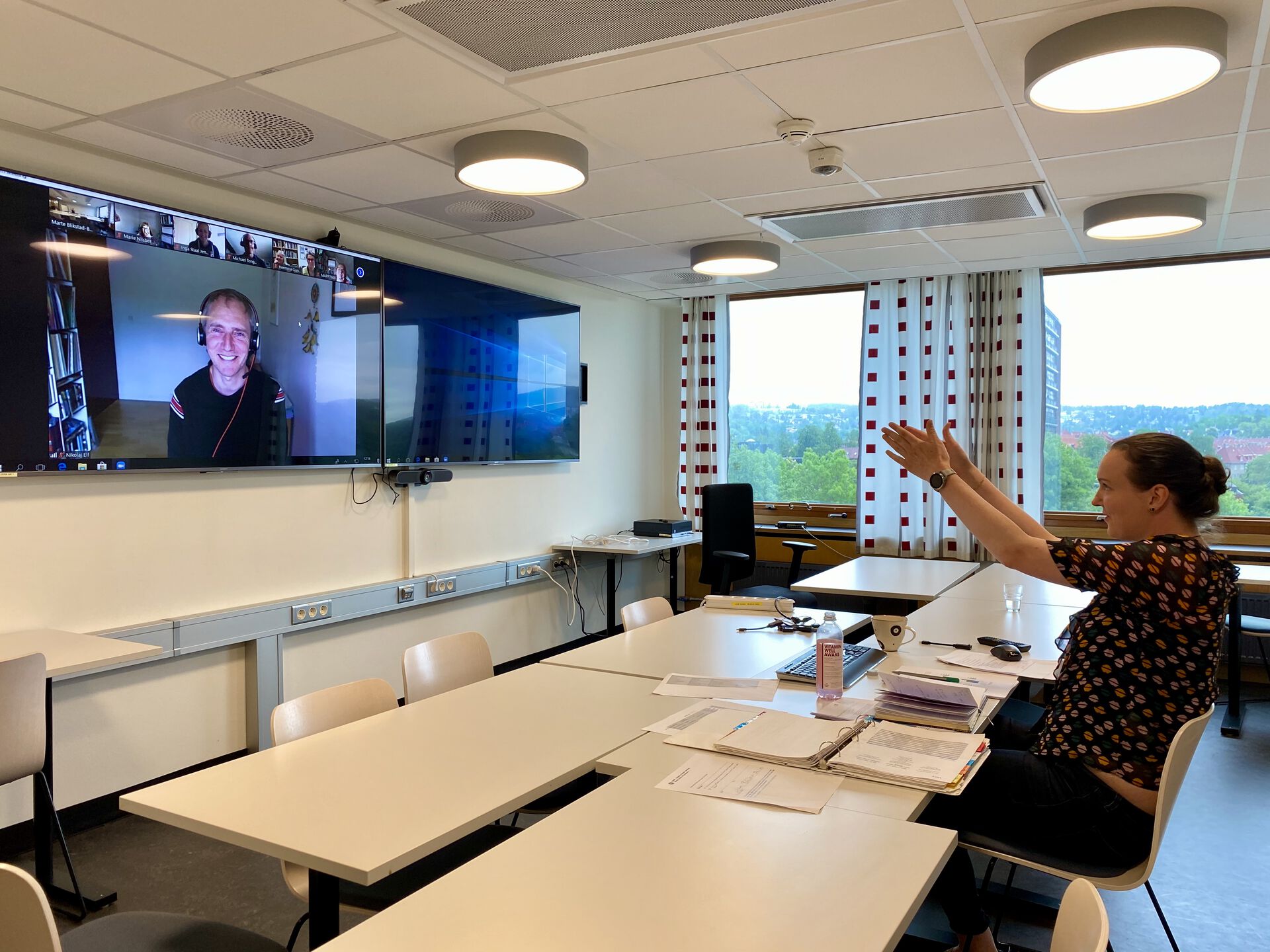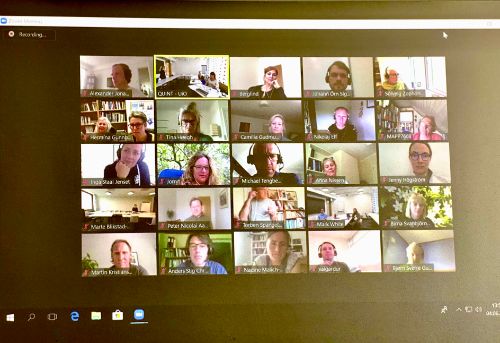Linking Instruction and Student Achievement in Nordic Schools (LISA Nordic) is a large scale video study, drawing on videotaped lessons from more than 150 different classrooms in all five Nordic countries. The project aims to investigate the quality of teaching and to understand in what ways different instructional practices in language arts, mathematics, and social science contribute to student learning.
Part of the large ambition of LISA Nordic is to generate comparative data of looking at instruction across the different Nordic countries. The PLATO webinar on 4 June was a chance for the different teams to gather and start working on that ambition and having conversations based on viewing and analysing selected Nordic classroom videos.
The goal of the webinar was to start having these conversations in order to find out how different teams from different countries interpret and understand what they see in the videos. The focus of the workshop was on exploring differences in instructional practices and interpretations of those practices across countries. This included hosting subject-specific discussions - in language arts, mathematics and social science - that were based on two videos taken from two separate participating countries.
The discussions focused on differences in interpretations of instructional practice and whether the observed instruction does or does not reflect patterns common across countries. Part of the larger QUINT ambition is building this kind of shared understanding, and that includes seeing what the differences and similarities between the different cultures are.
One aim for scoring the same videos across the different countries was to get joint ratings for everyone and understand the extent to which raters across the countries are using PLATO observation manual the same way.

The Protocol for Language Arts Teaching Observations (PLATO) is a classroom observation protocol designed to capture features of English/Language Arts (ELA) instruction. It was developed to study the relationship between teachers' classroom practices and their impact on student learning.
The challenges and opportunities of using PLATO
Using The PLATO observation manual as a starting point for the discussions was important in order to isolate certain elements and focus the discussion on specific areas. Many of the following conversations focused specifically on elements such as intellectual challenge, representational content and purpose.
However using PLATO across several subjects and several countries presents some challenges as well as opportunities. The overall aim of the webinar was to allow conversation to go beyond the bounds of PLATO and focus on instruction more broadly within specific areas. Since the webinar included both PLATO certified raters and those who are not certified, it was an opportunity to reflect on many perspectives, with the PLATO scoring as a starting point.
It was also interesting to see what PLATO might not capture, such as the teacher's pacing or how well the teacher is able to monitor different activities and stay with the students throughout.
Plans for future webinars
The webinar was well-attended and gave space for many insightful conversations. QUINT Centre Director Kirsti Klette found the webinar powerful and very interesting and is planning to organise regular webinars of this kind in the autumn.
Jennifer Luoto who participated in the mathematics group, said it was very interesting to learn about how different raters interpret PLATO elements and how they justify their scores.
Anders Stig Christensen participated in the social science group felt that it worked extremely well to be able to share and watch the videos from different countries beforehand.
– The PLATO-manual does not capture all important aspects of quality in teaching, but it is a very valuable tool in providing a common language, and points of focus for the discussions, Christensen said.
– In the social science group, QUISST, we had very interesting discussions with the comparative view providing new opportunities for insights in and understandings of what constitutes quality in social science education, Christensen concluded.
